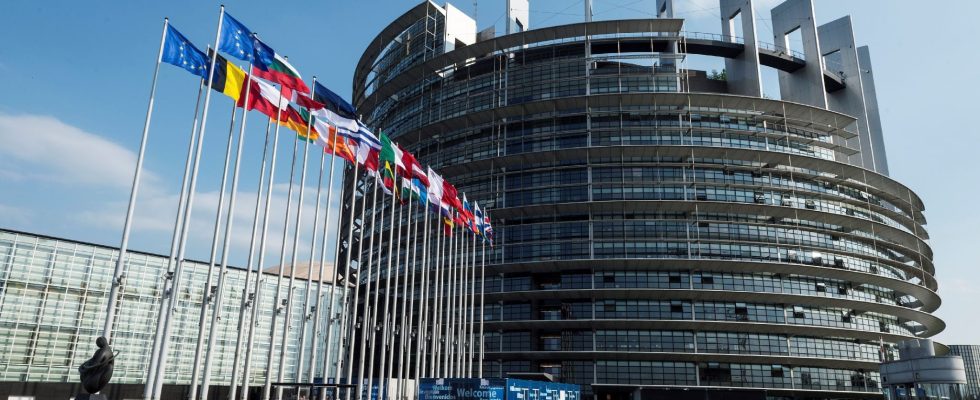This is unique legislation in the world. The European Parliament adopted, this Wednesday, March 13, by a very large majority (523 votes for, 46 votes against) rules to regulate artificial intelligence. This text aims in particular to protect rights and security, while supporting innovation.
This bill was presented by the European Commission in April 2021. The appearance at the end of 2022 of ChatGPT, from the Californian start-up OpenAI, capable of writing essays, poems or translations in a few seconds, gave it a new dimension .
A “historic, pioneering” regulation
During the debate this Tuesday in the European Parliament, the co-rapporteur of the text, Brando Benifei (Social Democrats) underlined that the text presented to the vote of MEPs constituted the “first binding law in the world on artificial intelligence”.
Thanks to this text, “practices unacceptable in Europe will now be prohibited such as the recognition of emotions in the workplace or the deduction of a person’s ethnic or religious affiliation on the basis of biometric data”.
It is a “historic, pioneering” regulation, added another co-rapporteur of the text, Dragos Tudorache (Renew, centrists and liberals), hoping that the EU “plays its role on the international scene”, and “not only creates rules but exports them.
A two-tiered approach
The legislation provides for a two-tiered approach. “General purpose” AI models will have to comply with transparency obligations as well as European copyright rules.
As for systems considered “high risk” – used for example in critical infrastructure, education, human resources, law enforcement – they will be subject to stricter requirements. For example, they will have to provide for the establishment of a mandatory impact analysis on fundamental rights.
Artificially generated images, texts or videos (deep fakes) must be clearly identified as such. The text also plans to ban citizen rating or mass surveillance systems used in China, or even remote biometric identification of people in public places.
“Many of these new rules remain unclear”
For its part, the tech world has been cautious. “Many of these new rules remain unclear and could slow down the development and deployment of innovative applications,” Boniface de Champris, a Europe manager at CCIA, a sector lobby, told AFP.
For their part, the Multinational Observatory (France), Corporate Europe Observatory (Belgium) and LobbyControl (Germany) fear that lobbies will weaken the implementation of the rules surrounding AI. “Many details of the AI law remain open and need to be clarified […], for example with regard to standards, thresholds or transparency obligations. The composition of the advisory board of the new European AI agency also remains unclear,” they warned in a joint statement.
The text must now be formally approved by the Council to be incorporated into EU law.
